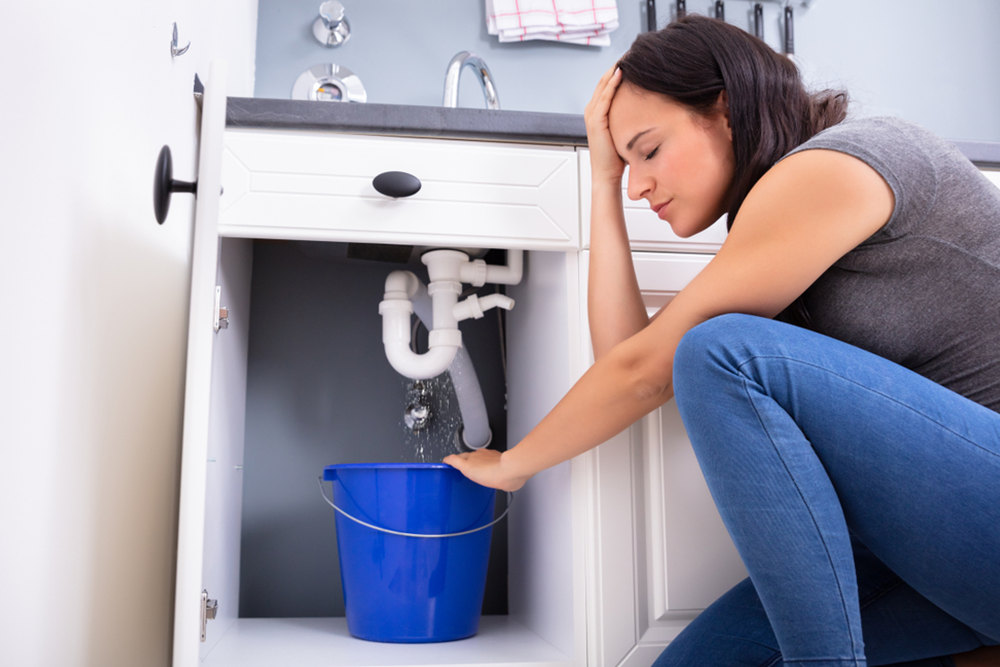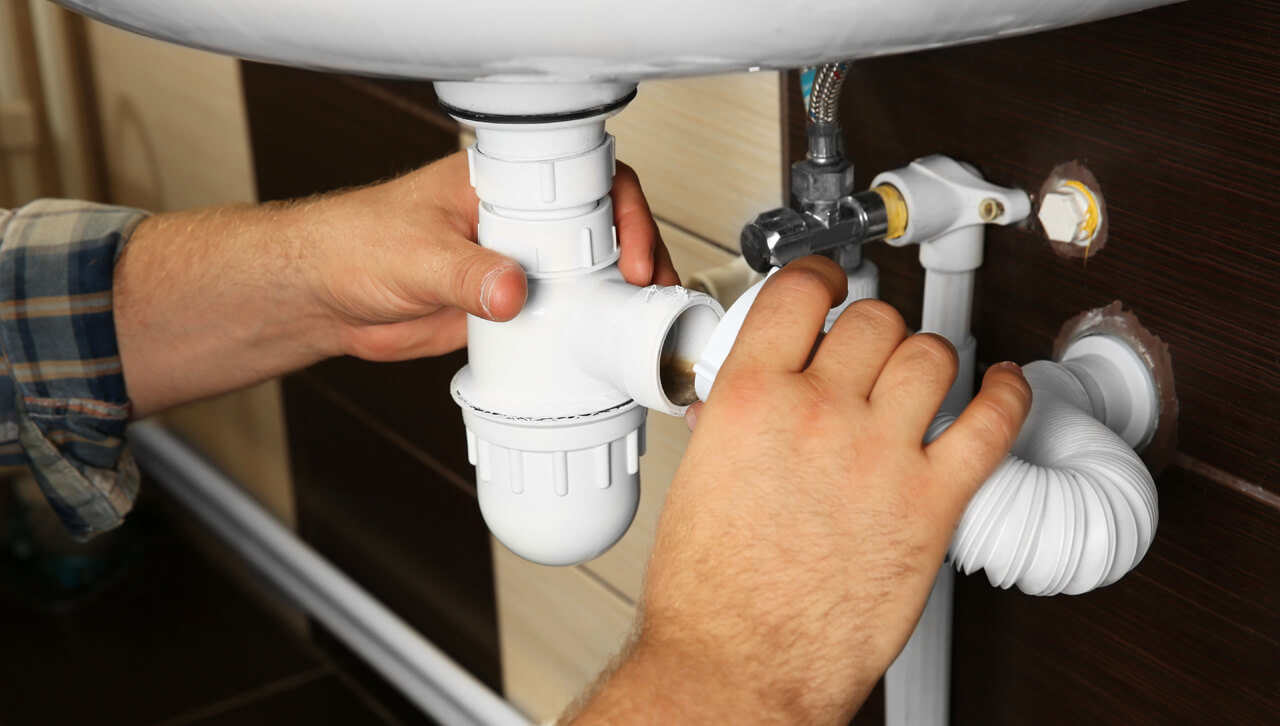On this page below yow will discover a good deal of sensible information related to Garbage Disposal Leaking From Bottom.

Garbage disposals are necessary kitchen devices that assist in throwing away food waste efficiently. Nevertheless, a dripping waste disposal unit can be an irritating and unpleasant trouble to deal with. Luckily, many leaks can be dealt with quickly with a few straightforward actions. In this short article, we will discuss how to deal with a dripping waste disposal unit properly.
Introduction
Waste disposal unit are installed under kitchen sinks and are created to shred food waste into smaller sized pieces, permitting it to pass through the plumbing system easily. While these tools are usually trustworthy, leaks can happen with time because of wear and tear, loose links, or damage to the system.
Common Root Causes Of Leakages in Waste Disposals
Worn Seals and Gaskets
Seals and gaskets play an essential role in preventing water from dripping out of the waste disposal unit. Over time, these components can degrade, causing leakages around the disposal system.
Loose Links
The connections in between the waste disposal unit and the plumbing system can end up being loosened with time, causing water to leak out throughout procedure.
Cracks or Openings in the Disposal System
Physical damages to the waste disposal unit, such as splits or openings in the real estate, can likewise cause leaks.
Determining the Resource of the Leak
Prior to attempting to deal with a dripping garbage disposal, it is necessary to identify the source of the leak. This can typically be done via aesthetic examination or by conducting easy tests.
Visual Inspection
Inspect the garbage disposal unit very carefully for any kind of indicators of water leakage. Pay attention to areas around seals, gaskets, and link factors.
Examining for Leakages
One method to evaluate for leakages is by running water through the disposal device and checking for any noticeable indications of leak.
Tools and Products Needed for Dealing With a Dripping Waste Disposal Unit
Before starting the repair work procedure, gather the needed tools and materials, consisting of a screwdriver, flexible wrench, plumbing technician's putty, replacement seals or gaskets, and epoxy or patching product for fixing fractures or openings.
Step-by-Step Overview to Repairing a Dripping Garbage Disposal
Shut off the Power
Before trying any repair services, make sure that the power to the waste disposal unit system is switched off to stop the threat of electrical shock.
Locate the Leak
Identify the precise place of the leakage and determine the cause.
Tighten Links
Make use of a wrench to tighten up any type of loose connections between the disposal unit and the plumbing system.
Replace Seals or Gaskets
If the leak is due to worn seals or gaskets, get rid of the old components and replace them with brand-new ones.
Patching Cracks or Holes
For splits or holes in the disposal unit, usage epoxy or an ideal patching material to seal the damaged area.
Examining the Garbage Disposal After Repair
When the repair service is full, check the garbage disposal by running water with it to make sure that the leakage has been dealt with.
Preventive Maintenance Tips to Avoid Future Leaks
To stop future leaks, it is essential to do regular maintenance on your waste disposal unit. This consists of keeping it tidy, staying clear of placing non-food products or hard objects down the disposal, and regularly checking for leakages or other concerns.
Final thought
In conclusion, repairing a leaking garbage disposal is a fairly straightforward procedure that can be completed with fundamental devices and materials. By complying with the actions detailed in this short article and exercising preventive upkeep, you can keep your waste disposal unit in good working condition and prevent pricey repairs in the future.
HERE’S HOW TO FIX YOUR GARBAGE DISPOSAL
WHAT TO DO IF SOMETHING IS STUCK IN YOUR GARBAGE DISPOSAL
If the impeller won’t turn, there’s probably something stuck in the disposal. It could be a steak bone or peach pit, although plumbers report pulling all sorts of inappropriate objects out of disposals, such as bottle caps or aluminum foil. Make sure power to the disposal is off, and look inside to see if you can see the source of the jam.
Never stick your fingers in a disposal. Pull out anything you see with tongs or pliers.
If the disposal still won’t work, it may be time to call a plumber or consider buying a new disposal. GEM Plumbing & Heating is here for all of your garbage disposal needs.
WHAT TO DO IF YOUR GARBAGE DISPOSAL DRAIN IS CLOGGED
- Take everything out from underneath your sink and put a bucket or other container under your disposal to catch any water that drains out.
- Disconnect your disposal from the power supply.
- If it’s plugged into a wall outlet, unplug it.
- If it’s hardwired into an electrical box, go to the electrical panel and turn off the breaker for the disposal.
- Pour ¼ cup of baking soda into the drain, followed by ½ cup of white vinegar. Give the solution a few minutes to fizz and do its work.
- Look into the disposal with a flashlight to see if you can see an object that might be causing the clog. If you see it, remove it using tongs or pliers.
MORE TIPS ON DEALING WITH A CLOGGED GARBAGE DISPOSAL
- Never use drain cleaner in a garbage disposal. It can damage the plastic parts inside the disposal. You can also be splashed with the caustic liquid while working to clear the clog.
- Beware! Never stick your fingers into a garbage disposal. Trust us — not a good idea.
- In many instances, your dishwasher drains through your garbage disposal. This allows the disposal to grind any large food particles that may be drained out of your dishwasher. There are some jurisdictions, however, where the plumbing code prohibits such a connection.
WHAT TO DO WHEN YOUR DISHWASHER DRAINS THROUGH THE DISPOSAL
- Run some water in the sink so your plunger has at least a ½-inch of water to create a seal and plunge vigorously up and down several times. You may need to repeat this several times.
- Run hot water down the drain to clear any residue that remains.

As a person who reads about Why Is , I assumed sharing that piece of content was essential. Feel free to set aside a second to distribute this blog posting if you enjoyed it. Thanks for going through it.
Schedule Now

